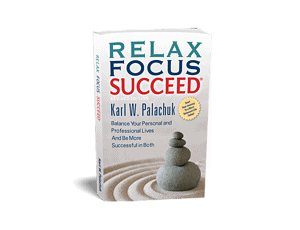I was about eight or nine when I fell in love with reading. And I think what I really fell in love with was the longing that the story would not end. I learned a few important lessons from Louisa May Alcott.
The first time I read Little Women, I enjoyed it so thoroughly that I remember wishing that it would not end. As I turned the pages and the remainder got smaller and smaller, I started to feel a sense of loss simply because the wonderful story would be over. And so, the first lesson I learned was that I could read a really good book more than once.
Reading a book more than once became a regular habit of mine. Now it takes the form of buying an audio book, plus the Kindle version, and often the paper edition as well. Especially with non-fiction, I often buy the paper edition of any e-book I find particularly useful. For many years, I committed to reading every book twice, if I could do so before it needed to be returned to the library.
As odd as it sounds today, my parents often dropped us off at the library to spend an evening wandering the shelves. My brothers and I almost always checked out whatever the limit was. As you might suspect, my parents were both avid readers.
One of the most lasting visions of my mother is of her sitting at the kitchen table, reading until she went to bed. And I never understood the humor in the old joke that men never ask for directions. Whenever he took on a new project (which was often), my father started by buying the book – or checking it out from the library.
How do you rebuild a caburetor? Step one: Buy the Chilton’s manual. How do you design cabinets? Step one: Buy the book. How do you reupholster a chair? Step one: Buy the book.
Unfortunately, the second thing I learned from Louisa May Alcott is that the sequel is often not as good as the original. When I discovered there was a book called Little Men, I read it immediately. I finished it. But I was okay when it ended. I didn’t need to read it again. I didn’t long for it to go on. I was happy to move on to the next author.
Skip ahead fifty years. Today, we all love binge-watching good shows. Why? While every episode has some kind of mini-story with a conclusion, the big story goes on. We love (or hate, as appropriate) the characters. We’re happy to see them with each episode. We want the big story, the grand adventure, to go on.
For some series, the premise changes after a couple of seasons. The big story is no longer interesting, or believable, or fun, or whatever. It’s just not the same. It’s no longer the grand adventure we got addicted to at the beginning. The author let us down.
Many people (myself included) actually give up when a show moves too far away from the original premise. And that’s okay. We learn that we don’t have to stick around for the ending. And, sadly, we also learn that some creators don’t have a commitment to it either.
In classic plays and literature, things have to have a great ending. The villain dies. The heroine lives. The good prevail. All the loose ends get tied up. Even if the ending isn’t great, there’s a certain commitment to tying things up nicely.
Shakespeare has several examples of this. We know what happens to the main characters and their plots and sub-plots. But often, he introduces minor characters with their own plots and sub-plots. But he doesn’t always tie up all the loose ends. So he just throws them into the epilogue (a speech at the end). Some people suggest the epilogue was created simply to tie up loose ends. One great example is The Tempest.
On rare occasions, actors simply walk away. One of the great cult classics of all time is Monty Python and the Holy Grail. Do you remember how it ends? It doesn’t. The knights don’t find (and won’t find) the Holy Grail. Suddenly police show up and Lancelot appears to be under arrest. Authur is accused of murder in modern day England and the movie is over.
None of that stupid “ending” affects the fact that the movie – the story we love – is hilarious. Millions of people have memorized every single word in that movie. I’ve been at more than one party where people turned on Monty Python and the Holy Grail and proceeded to re-enact every single scene live.
The presence or absence of an ending was irrelevant.
We should remember this in our own lives. Like Little Women, I’m in no hurry to get to the end of my story. And with modern science, the ending probably won’t be very great or even very dignified.
It’s the living, it’s the episodes that matter. I am hoping to have episodes in Canada and Australia this year. And maybe Mexico and Spain. I can’t wait for the episode where I get to welcome a bunch of consultants to a dinner sponsored by my favorite vendor.
My daughter’s working on having a baby. I don’t want to miss the episode where I get to be a grandfather. Or the episode where I cry as I hold a brand new baby.
With luck, there’s an episode with love. And several episodes on the beach. Maybe some episodes with live music and warm sunshine.
I always love a vacation that’s exactly one day too short. I’m disappointed when I go home saying, “that was just right.” I long for the vacation where I am happy for the adventure and want just one more day.
We spend a lot of energy on endings, when we should enjoy long, luxurious middles. Let the ending take care of itself.
🙂








